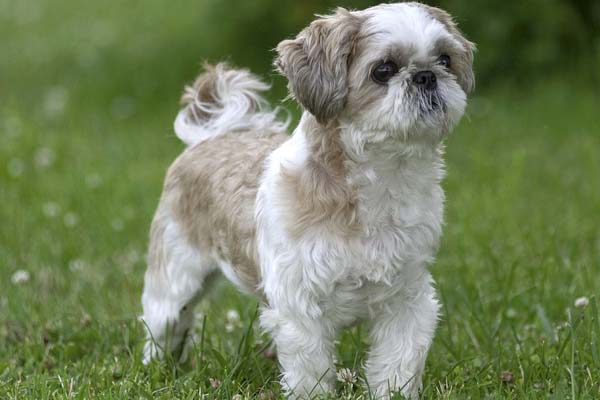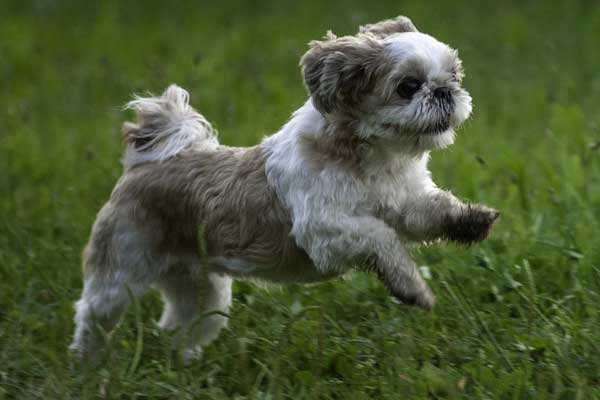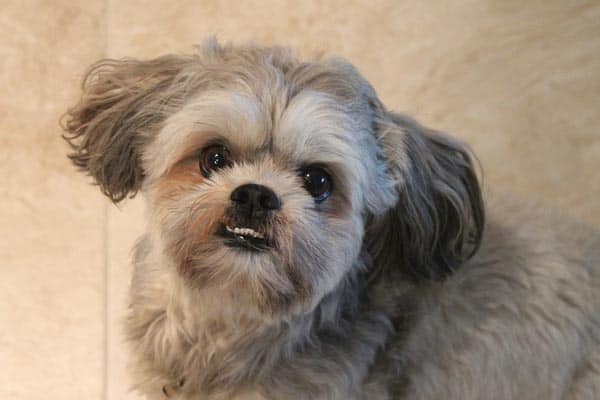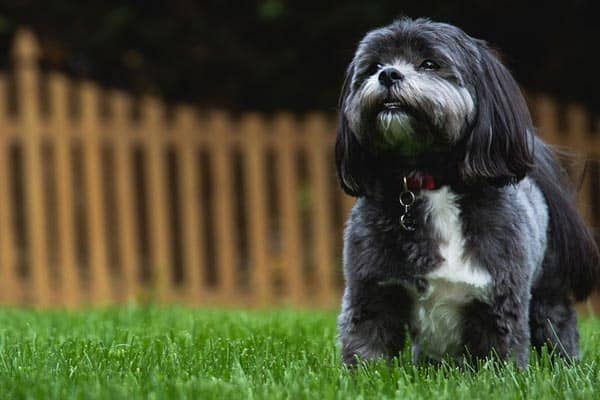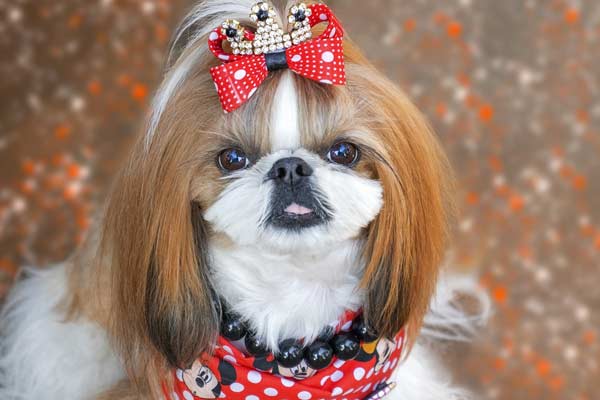How Many Teeth Does a Shih Tzu Have: Dental Changes in Puppyhood and Adulthood
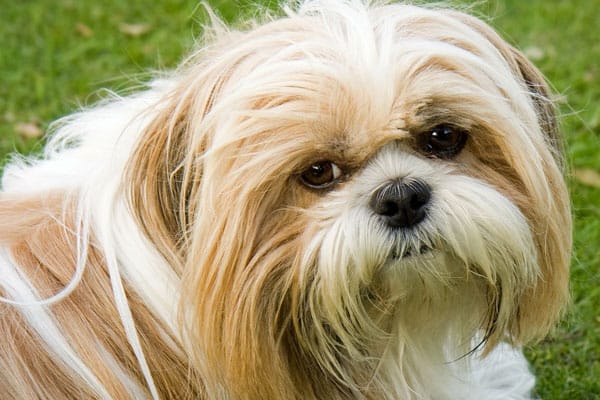
Shih Tzu dogs are so tiny in every way. It can be hard to imagine how these dogs’ small mouths can accommodate a full set of upper and lower teeth!
But while their mouths do try to find space for all those teeth, because of their small size, the Shih Tzu is prone to more dental issues than many larger dog breeds.
As well, the first year of your Shih Tzu’s life is action-packed from a dental perspective. Teeth are growing in and falling out and then growing in again.
In this article, learn what to expect in terms of the number of teeth your Shih Tzu will have during puppyhood and in the adult dog years. Also, learn about important common dental health issues to watch for with your Shih Tzu.
How Many Teeth Does a Shih Tzu Have?
According to Edgemont Veterinary Clinic, the number of teeth your Shih Tzu has will change depending on the stage of life.
In puppyhood, it is customary for a Shih Tzu to have 28 teeth. These teeth are considered puppy teeth or deciduous teeth. These teeth are temporary and may begin to dissolve and fall out as early as six months of age.
In adulthood, it is customary for a Shih Tzu dog to have 42 adult teeth. These teeth will grow to start around the same time the puppy teeth begin to fall out and should last your dog throughout life.
Watch the Dental Care Routine for a Shih Tzu Dog
This helpful short owner-made video shows you what Shih Tzu dogs need for basic tooth-cleaning maintenance.
The owner explains her process step by step and even offers an overview of the products she uses with her Shih Tzu. It is important to start brushing your Shih Tzu’s teeth in puppyhood so your dog gets used to the sensation and isn’t frightened.
Your Shih Tzu’s Teeth As a Puppy
Just like with any puppy breed, the Shih Tzu starts out in life as a blind, deaf, toothless baby.
These teensy puppies rely on their mom (or human surrogate) for everything and can only take in liquids for a number of weeks because they don’t have any teeth for chewing food.
But conveniently starting around the same time when the puppies are weaned off their mother’s milk, Shih Tzu puppies will begin to get a set of teeth that is called the “puppy teeth” or the “milk teeth.”
These 28 puppy teeth are smaller and are not designed to remain in the mouth permanently.
According to the American Kennel Club (AKC), the puppy teeth may start to show themselves as early as two to four weeks but can take up to six weeks to fully come in. The new set of baby teeth helps the Shih Tzu puppy learn to eat soft solid food.
Unfortunately, nearly as quickly as the puppy teeth come in, they will start to fall out again. For most puppies, this can start as early as 12 weeks old (about three months), and they may continue to lose teeth for up to six months.
This lengthy process can be a particularly painful one for you, the Shih Tzu owner. The process is called “teething” for a reason! Your puppy is also experiencing discomfort and pain and will be prone to chewing on anything and everything to find relief.
As for you, you will soon get used to finding tiny shed teeth scattered around, especially after a good chewing session.
By the age of six months or so, your Shih Tzu puppy should have a nice set of 42 adult dog teeth.
You will want to keep a very close eye on this because sometimes, not all the puppy teeth fall out. In some cases, they may remain in place and cause crowding with the larger and more numerous adult teeth, and this can then cause dental problems.
We will talk more about those problems and what warning signs to look for here shortly.
Your Shih Tzu’s Teeth As an Adult Dog
So as an adult dog, your Shih Tzu will start life with a full set of strong and healthy adult teeth. Or at least this is the outcome you are hoping for, barring any problems with remaining puppy teeth and overcrowding.
But just like for you, if one of your dog’s adult teeth gets damaged or lost, your Shih Tzu won’t be able to grow a replacement tooth. The better care you take of your Shih Tzu’s adult teeth, the better health your dog will enjoy.
How Does the Shih Tzu Fit All Those Adult Teeth Into Their Mouth?
As the American Kennel Club (AKC) Shih Tzu dog breed profile points out, these are really tiny dogs! Most adult Shih Tzus weigh just nine to 16 pounds fully grown – and much of that weight is their signature long human hair-like coat.
As we pointed out earlier, the smaller the dog, the smaller the mouth. And dogs of all sizes, from giant to teacup, get the same number of adult teeth – 42.
So how do 42 teeth manage to cram themselves into such a tiny jaw?
This is the first and most common problem that Shih Tzu dogs can experience, as Hale Veterinary Clinic points out.
The truth is, sometimes there isn’t enough room. When all 42 teeth insist on coming in, this often causes intense overcrowding and odd tooth rotation in a tiny dog like the Shih Tzu.
Sometimes not all 42 teeth will come in, and teeth will be missing. This may not be viewed as an ideal situation for a larger dog breed. But in a toy-sized breed like the Shih Tzu, it can be an advantage.
However, there is no way to tell at a glance whether a tooth is missing because it never formed in the first place or because that tooth is trapped beneath the surface of the gum (impacted).
So the first thing a veterinary dentist will have to do is take radiographs (X-rays). This will reveal what, if anything, is going on beneath the gum’s surface, including the presence of partial or fully impacted adult teeth.
Sometimes the tooth will also break off at or beneath the surface due to malformation or too-intense chewing during the teething phase. In this case, because the root is still there, the other teeth cannot make use of the extra space to grow in.
All this translates to mean that it is important to establish regular dental exams for your Shih Tzu starting in puppyhood. This way, your veterinarian can detect emerging problems before they become big and expensive emergencies.
Common Dental Health Issues in Shih Tzu Dogs
While overcrowding in the mouth is by far the most common dental health issue toy-sized dog breeds like the Shih Tzu tend to face, a simple issue of overcrowding can lead to other more serious dental issues later in life.
We will describe the most common of these issues in this section.
Voluntary tooth extraction
Because the Shih Tzu has such a tiny mouth that it is guaranteed to be overcrowded if all 42 adult dog teeth grow, this can cause massive issues with both how and where the adult teeth grow.
For example, as Tooth Vet points out, the adult teeth may grow in front of other teeth. They may grow sideways or at an angle to other adult teeth. They might grow backward.
They might grow twisted or stacked up so closely next to adjacent teeth that none of the teeth can get a good, firm grip on the surrounding jaw bone.
For this reason, there are really only two future outcomes: either you schedule a voluntary extraction of some of those teeth, or you cope as gingivitis, and periodontal disease develops later in life.
The former is a much less invasive and uncomfortable option for your dog and a much less expensive and stressful option for you.
Gingivitis and periodontal disease
It is not always possible to be proactive about dealing with an overcrowded mouth in puppyhood.
Sometimes there are cost issues where the budget just won’t allow for a voluntary tooth extraction.
More commonly, the owner just isn’t aware that tooth overcrowding can become such a serious health threat to their Shih Tzu and doesn’t think to ask the veterinarian about it.
And sometimes, a new owner may rescue an adult Shih Tzu dog that didn’t get preventative dental care and some level of gingivitis, or periodontal disease has already set in.
According to the American Shih Tzu Club, up to 85 percent of adult Shih Tzu dogs will eventually develop some level of periodontal disease.
The most important action to take is just to start from wherever you find yourself. If gingivitis or periodontal disease has set in, there are treatments for it that your veterinarian can apply.
Unfortunately, some teeth may be lost in the process, and you may have to make special adjustments to your Shih Tzu diet, providing softer foods that are easier to chew.
Dental cysts
Sometimes a Shih Tzu’s mouth may not look as overcrowded as it truly is. This can occur when not all the teeth actually break through the surface.
This can happen when a tooth is impacted because it grows sideways or at an angle instead of straight up. It can also happen when the tooth is broken off or forms imperfectly to start with.
When there is any portion of a root or tooth trapped beneath the gum line, it is not visible to you or your veterinarian. So you likely won’t know there is anything wrong with your dog’s mouth.
But over time, that tooth can cause a cyst to form, and that cyst can cause degradation of the surrounding jaw bone. This can have far-reaching impacts not just on that tooth and the immediately surrounding teeth but on the integrity of the whole jaw bone.
An unaddressed cyst is not always painful to your dog in the short term but can cause long-term discomfort as it then causes bone malformation or disintegration.
Cysts are often the first indication there is a tooth stuck in your dog’s gums. Your veterinary dentist will need to X-ray the area and likely will then need to extract the stuck tooth.
Why Good Dental Hygiene for Shih Tzu Dogs Can Be Life-Saving
Because the Shih Tzu dog literally has more teeth than they have the mouth to accommodate, maintaining excellent oral health hygiene is a top priority when you own one of these tiny dogs.
Your dog will need your help to minimize the likelihood of bacteria getting trapped and causing an infection that can lead to periodontal disease.
Your canine veterinarian can help you identify the best products to use with your dog to minimize tartar buildup and fight back against tooth decay.
So you will want to make sure you brush your Shih Tzu’s teeth at least three times per week. If time permits, you may want to do a daily tooth brushing at the same time you give your dog’s coat a brushing each day.
According to Aubrey Animal Medical Center, if for any reason you don’t know or are not able to tend to your dog’s preventative oral health needs, this could reduce life expectancy by up to three years!
Luckily, there are a variety of great products that can help you keep plaque, tartar, and bacteria at bay in your dog’s overcrowded mouth.
You can also stay alert for any warning signs of dental issues, including bad breath, loose teeth, a loss of appetite, visible evidence of tartar and plaque buildup, swellings, redness, and signs of discomfort.
By taking the time to educate yourself about the special dental health needs of toy-sized Shih Tzu dogs, you give your dog the best chance for lifelong health.
